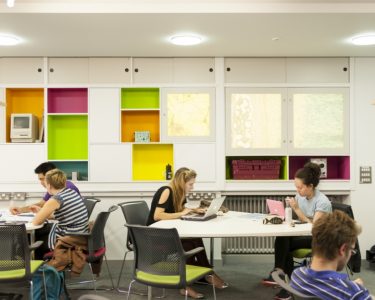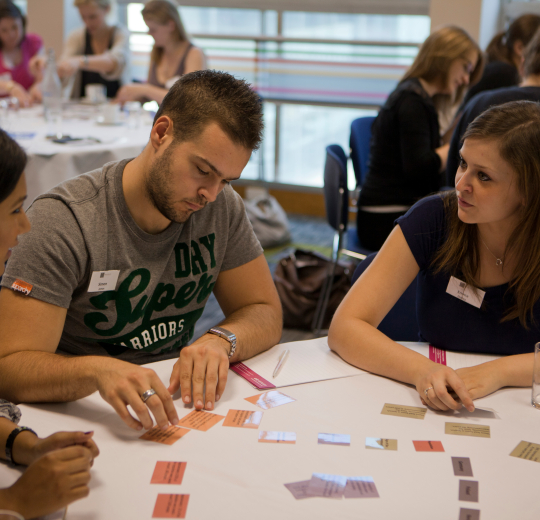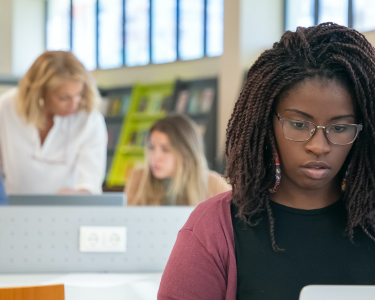Our workshops update teachers’ own knowledge and build confidence in teaching this complex and emotive subject. All our teacher training is free, thanks to funding from the Department for Education and Pears Foundation. You will leave with access to a wealth of effective and engaging classroom resources.
Full day CPD ‘Unpacking the Holocaust’
Our full day CPD day is our principal introduction to the key issues in Holocaust education and is relevant to all teachers. It takes place from 8.30am to 4.30pm and includes the following interactive workshops:
Who were the 6 million?
- How is it possible to understand the significance of genocide if we do not appreciate what was lost?
This workshop reveals the vibrancy and diversity of European Jewish communities on the eve of the Holocaust. We also begin to explore the European culture of antisemitism, starting with the question many Jewish children asked their parents as they struggled to understand the world around them, ‘But why do people hate us?’ Find out more about the ‘Jewish life in Europe’ teaching resources you will be able to access after attending one of our Core CPD days.
What was the Holocaust? An interactive timeline
This practical classroom activity uses an interactive timeline to provide a clear ‘big picture’ of this complex history, skillfully combining depth and overview in a profound and meaningful learning experience. Using details about Nazi decrees alongside personal stories of the victims, this workshop explores the impact of state policy on real men, women and children, creating a compelling interactive timeline that interweaves the narratives of multiple victim groups. Find out more about the ‘What was the Holocaust?’ interactive timeline teaching resource you will be able to access after attending one of our Core CPD days.
Being human?
Through a range of detailed case studies, students uncover how and why ordinary people became complicit in mass murder, posing searching questions about what it is to be a citizen in the modern world.
Key questions explored include:
- How was the Holocaust humanly possible?
- What kind of people became perpetrators and collaborators?
- What sort of people resisted the Nazis or risked everything to save their Jewish neighbours?
- Who gains from genocide?
Find out more about the teaching Being Human resources you will be able to access after attending one of our Core CPD days. Nunnery Wood High School students teaching our ‘Being Human?’ lesson to their peers.
Surviving survival
- What is the continuing significance of the Holocaust in the modern world?
- How did survivors rebuild their lives?
- What impact did the genocide have on European society
Challenging preconceptions and complicating prior assumptions should be an objective of any classroom. This is particularly important when students examine the long-term impact of the Holocaust on its survivors, on Jewish communities, and on Europe as a whole. Just as many survivors were able to build ‘normal’ new lives, others struggled on a daily basis with the legacies of the genocide. With Leon Greenman’s later life as an example, students confront some of the enduring consequences of the Holocaust as well as the persistence of prejudice and discrimination. Find out more about our teaching resources on the legacy of the Holocaust that you will be able to access after attending one of our Core CPD days:



